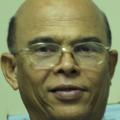Burma's democracy icon Aung San Suu Kyi returned to work on 15 November at her National League for Democracy (NLD) party headquarters after being freed over the weekend from seven years and six months under house arrest. The 65-year-old Nobel Peace laureate spent 15 of the past 20 years under house arrest.
On 14 November (Sunday), thousands of supporters thronged outside the NLD headquarters in Rangoon to hear Suu Kyi's first public speech since her arrest on 30 May 2003, in which she vowed to continue struggling for democracy, reconciliation and human rights.
Speaking publicly for the first time since her release on 13 November (Saturday), Suu Kyi told supporters she looked-for their support to change the country. "I think we all have to work together. I wish to work in unison with the people of Burma," she said. She stressed she alone could not guide the country to become a democratic state after 50 years of military rule.
"I don't believe in one person's authority and power to move a country forward," she said. "One human only cannot do something as important as bringing democracy to a country."
Her first assignment will be to make the opposition National League for Democracy (NLD)) party a legal body again, according to the NLD sources.
In May the party refused to register for the November 7 voting, the first held in 20 years. The NLD won landslide in the 1990 polls, but was deprived of power by the military junta.
"On Thursday (18 Nov.), we are going to file a lawsuit to reinstate the NLD as a legal party," spokesman Nyan Win explained to the media.
Another mission Suu Kyi is expected to undertake will be to evaluate the result of the November 7 polls, which many Western critics condemned as a sham.
The junta-backed Union Solidarity and Development Party claimed that it won an estimated 80 percent of the 1,159 seats in the three chambers of parliament. The party has been accused of vote rigging, buying votes and threatening voters. Daw Aung San Suu Kyi said she would wait to observe the testimony on the election compiled by a committee established by the NLD before commenting.
In the disputable recent polls, the pro-military National Unity Party won 63 seats while the National Democratic Force, a breakaway from the NLD, won only 16 seats. Two parties representing ethnic minorities did well in their states. The Shan Nationalities Democratic Party secured 57 seats, while the Rakhine Nationalities Development Party won 35.
A group of legislators has urged the government to denounce Burma's recent general elections as undemocratic, according to the Jakarta Post.
"We call upon the Indonesian government and members of ASEAN to neither recognize nor acknowledge Myanmar's elections," Eva K. Sundari, a legislator from House Commission III and a member of the Asian Inter-Parliamentary Myanmar Caucus (AIPMC), said.
She said in the interview, published on the BBC website, that she wanted peaceful end to military rule.
"I think we also have to try to make this thing happen" Velvet revolution sounds a little strange in the context of the military, but a non-violent revolution. Let's put it that way," she said.
Recently released Burma's Democracy Icon, Daw Aung San Su Kyi said, when meeting with ethnic representatives from United Nationalities Alliance (UNA) that the release of imprisoned ethnic leaders is one of her main concerns as well quoting to meeting participants, says Shan Herald Agency for News.
"She said she would work for the release of political prisoner including the ethnic leaders," said Sai Tin Hlaing, spokesperson of the defunct Shan Nationalities League for Democracy (SNLD), Burma's second largest winning party in Burma in the 1990 elections, but was dissolved by the ruling military junta for failing to apply for the recently held elections.
(Note: You can view every article as one long page if you sign up as an Advocate Member, or higher).





